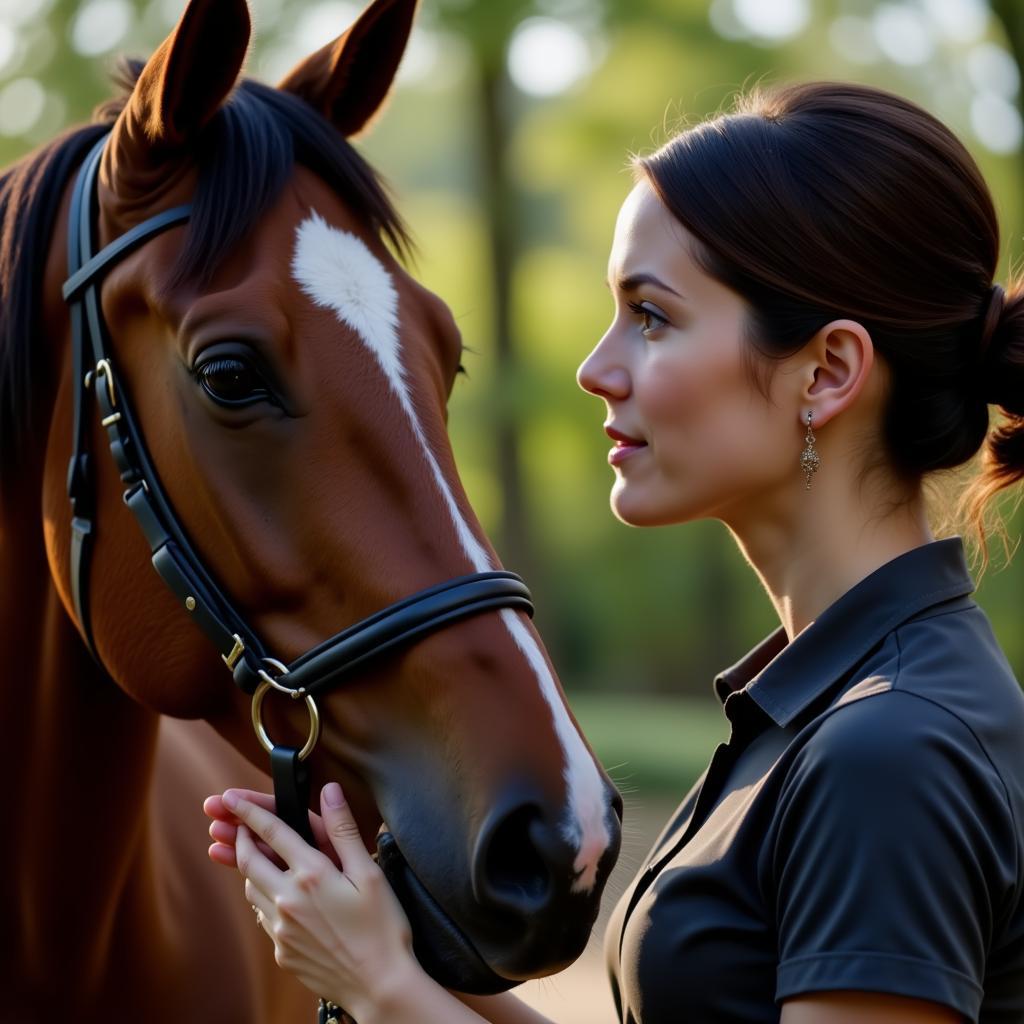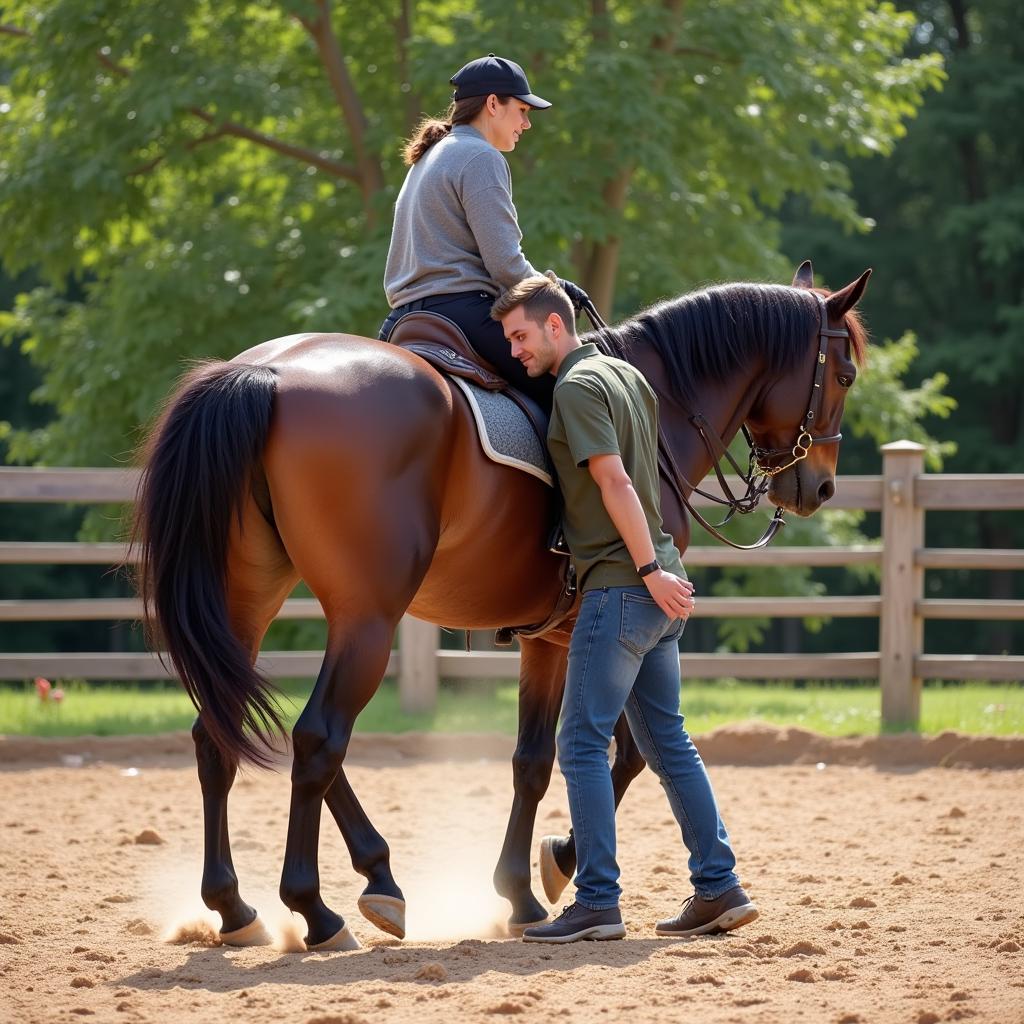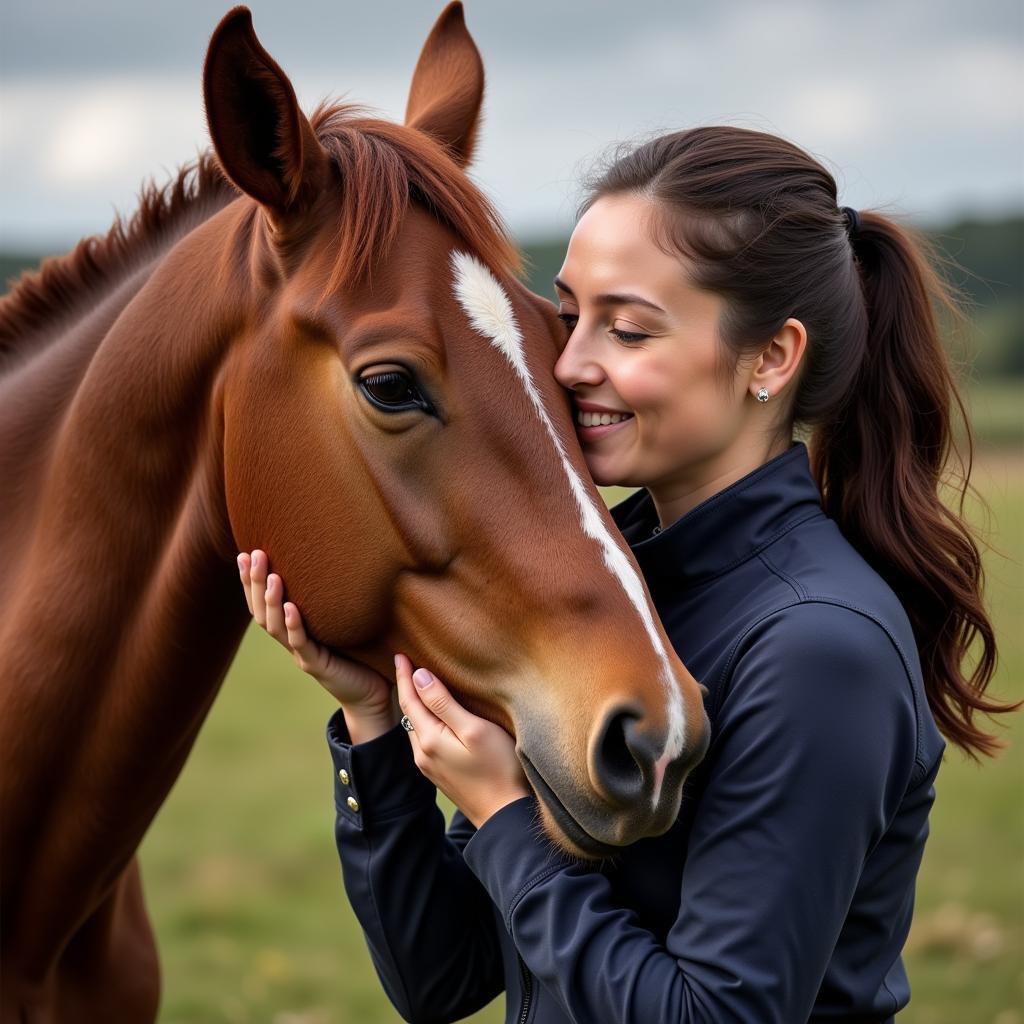The term “Horse Tamer” often evokes images of rugged individuals wielding whips and forcing wild horses into submission. However, the reality of true horsemanship, especially in the world of horse training, is far more nuanced and respectful. A true horse tamer, or better yet, a horse trainer, understands that building a relationship based on trust, communication, and mutual respect is key to success. This approach, far from breaking a horse’s spirit, allows the animal to reach its full potential while ensuring its well-being.
 Horse trainer communicating with a horse
Horse trainer communicating with a horse
Decoding the Myth of the “Horse Tamer”
The traditional image of a horse tamer often stems from historical practices that prioritized dominance over understanding. However, modern horsemanship has evolved significantly. Today, the focus has shifted towards gentler methods emphasizing positive reinforcement, patience, and clear communication.
 Applying natural horsemanship techniques
Applying natural horsemanship techniques
Forceful tactics are being replaced by techniques that acknowledge the horse’s natural instincts and learning processes. This approach, often referred to as natural horsemanship, centers around building a partnership with the horse rather than forcing it into submission.
Essential Skills of a Successful Horse Trainer
A successful horse trainer possesses a unique blend of knowledge, empathy, and practical skills. They understand equine behavior, psychology, and the importance of clear communication.
Key Skills of a Horse Trainer:
- Patience and Consistency: Building trust takes time. A good trainer remains patient, consistent, and understanding throughout the training process.
- Clear Communication: Horses primarily communicate through body language. Trainers must master the art of clear, concise cues using their body position, energy, and voice.
- Empathy and Observation: Every horse is unique, with its own personality, fears, and learning styles. A skilled trainer observes and interprets the horse’s behavior, tailoring their approach accordingly.
The Role of Trust in Horse Training
Trust forms the bedrock of any successful horse-human relationship. A horse that trusts its trainer is more likely to be receptive to learning and willing to perform at its best.
Building Trust with a Horse:
- Consistency and Predictability: Horses thrive on routine. Maintaining consistency in handling, training, and care helps build a sense of security and predictability.
- Positive Reinforcement: Rewarding desired behaviors with praise, scratches, or treats helps reinforce the learning process and strengthens the bond between horse and trainer.
- Respect for Boundaries: Horses, like any animal, have personal space. Respecting their boundaries and avoiding actions that might frighten or intimidate them is crucial for building trust.
 Horse and trainer bonding
Horse and trainer bonding
From “Taming” to True Partnership: A Journey of Respect
The journey from “tamer” to true horseman is a continuous process of learning, adapting, and refining one’s skills. It’s about understanding that a horse is a sentient being deserving of respect, not a creature to be dominated. Through patience, empathy, and a genuine desire to understand, we can move beyond outdated notions of “taming” and instead forge true partnerships with these magnificent creatures.
For guidance and support on your horsemanship journey, don’t hesitate to contact us. At Justus Horses USA, we’re dedicated to promoting ethical and effective horse training practices. Reach out to us at 0772127271 or [email protected], or visit us at QGM2+WX2, Vị Trung, Vị Thuỷ, Hậu Giang, Việt Nam. Our team is available 24/7 to assist you.